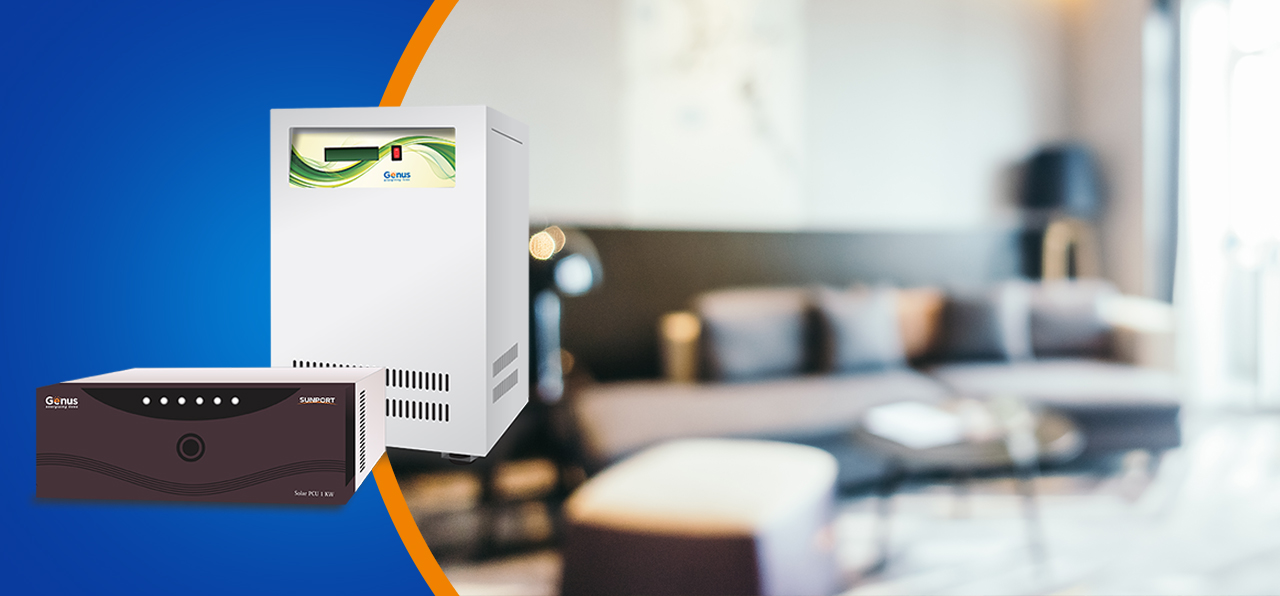
Are you tired of waiting for the electricity to return every time the local transformer blows up or the power is shut down for maintenance? Buying an inverter can go a long way in helping you overcome the hardship you go through every time there is a power failure. Whether you need an inverter for your home or your office, you will get to choose from many different brands and models as per your budget. So, find out all about what an inverter is, what a battery is, and how you can pick the right ones for your power requirement.
What is an inverter?
It is a backup power generating device that converts low-voltage direct current into standard household alternating current power, to provide your home with an uninterrupted electric supply.
Having cleared that up, let’s go over how to buy an inverter that is tailor-made for your needs. Note that buying what your neighbor brought can lead to a disaster, as the needs of every household or office are different.
• Understanding your power requirement
Your power requirement is the total electricity needed to operate all the appliances that you want running during a power failure. If you have multiple units of the same appliance (e.g. 4 fans), then you need to multiply the power usage of that appliance by the number of units that you have.
Also Read: Avoid These Mistakes To Keep Your Utility Bills Low
Now, imagine that you have four fans that each consumes 80 Watt of power. Further, you have three tube lights, three CFL, two LED bulbs, and also a television, which use 40, 20, 7, and 120 Watts, respectively.
Your electricity requirement would be:
4*80 + 3*40 + 3*20 + 2*7 + 120=634 watts
• Inverter vs Battery capacity
Ensure that your inverter batteries’ capacity matches the capacity of your inverter. Note that a battery’s capacity is the electricity it can store, and the inverter capacity is the amount of electricity it can serve at a time.
Batteries come in three types:
- Lead acid batteries
- Tubular plate batteries
- Maintenance free batteries
Selecting the ideal battery
The battery capacity, which is calculated in Ampere hours, can be found based on the backup time needed for all your appliances. There is a simple calculation that will help you pick the perfect battery for your needs.
Battery capacity= Power needed in Watts * Backup time (In hours) / Battery Voltage (Taken as 12V)
Imagine you need to run 3 fans, 3 tube lights, 1 CFL, and a television for 3 hours straight, during a power outage. Based on the formula, you would need a 130 Ah battery.
• Determining the VA rating of the inverter that you need
The inverter capacity, which is measured in Volt Ampere, is directly proportional to the total load that you are looking to support with it. The accurate value of the inverter capacity can be found by dividing the total load to be supported by the power factor, which is a measure of lost efficiency in the conversion of DC to AC. You can find the value of inverter capacity mentioned in the product description when you buy an inverter.
Also Read: Things to Keep in Mind before Buying the Best Inverter Brands
• Choosing between Sine wave inverter and Square wave inverter
Depending on what the AC looks like, you have two options, namely Sine wave inverter and Square wave inverter. It is recommended to purchase a Sine wave inverter despite its slightly higher cost, as it is safer and lasts longer. You can also find some modified sine wave inverters in the market that are cheaper than the regular ones.
Also Read: इन आसान तरीक़ों से घर पर करें इंवर्टर सही
• Inverter vs UPS
It is worth mentioning that a UPS is better suited for PCs because an inverter takes one microsecond to fall over to the backup power, and this delay in switching may harm the system. Hence, it is prudent to buy an inverter for using appliances such as fans, lights, TVs, etc.
• Checking the wiring at home
One of the crucial things to do before picking an inverter is to see if your home wiring is compatible with the inverter you are buying. It is best to exclude large appliances, such as refrigerators and air conditioners form the wiring, as they require a lot of battery power. Consulting with your technician and determining if your home is compatible with the inverter you are planning to buy is always a good idea.
Finally
An inverter is a great investment to keep your whole family comfortable during power outages. So, following this inverter buying guide will certainly help you buy one that satisfies all your power requirements.
